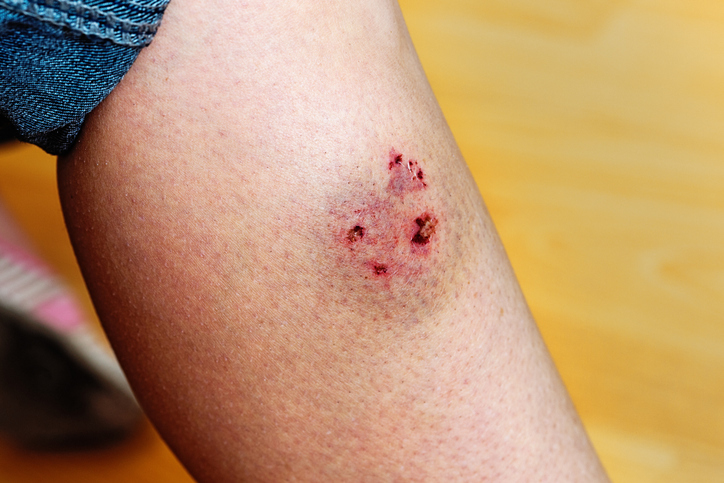Care Advice : Animal Bite and Rabies
Animal Bite and Rabies

Animal bites are common in Hong Kong. The vast majority of animal bites are caused by dogs and cats. For patients with an animal bite injury, essential components of management include:
- Local wound care
- Systemic antibiotic
- Tetanus and rabies prophylaxis
Wound Care:
- Infection is the most common complication after animal bite.
- To prevent infection, it is important to clean the wound quickly and thoroughly with copious amount of water and soap after an animal bite.
- Infections are more common after a cat bite than a dog bite. The bite wound culture usually yields five types of bacteria.
- The median time to signs and symptoms of infection following a dog bite and cat bite is approximately 24 hours and 12 hours, respectively.
- Cat bite wounds tend to penetrate through the tissue with a higher risk of deep infection e.g. arthritis or osteomyelitis.
- Dog bite wounds tend to cause crush injury. The jaws of large dogs can exert a strong force leading to serious injury and damage to the underlying structures e.g. fracture.
- Therefore, we advise victims to consult health care professional immediately after basic wound care such that antibiotics, tetanus and rabies prophylaxis can be provided in a timely manner.
Tetanus Prophylaxis:
- Tetanus is a serious, potentially life-threatening infection that can be transmitted by an animal or a human bite. Animal bites are considered a tetanus-prone wound.
- Depending on your tetanus immunization status, appropriate tetanus prophylaxis should be administered as soon as possible after a bite injury.
Rabies Prophylaxis:
- Both cats and dogs may harbor rabies. Other animals that may also carry rabies include raccoon, fox, and bat.
- Rabies is a fatal illness with no effective treatment. It is caused by the rabies virus, which infects the brain of animal, leading to unusual and often aggressive behavior.
- Fortunately, rabies virus infection can be prevented, even after a bite or a scratch from an infected animal occurs.
- Anti-rabies vaccine and human rabies immunoglobulin may be given for protection against rabies, depending on the vaccination status of the patient and offending animal.
- Please seek help from health care professions for further information regarding the advice on post-exposure prophylaxis.
- Finally, we recommend all domestic dogs or cats to receive rabies vaccination. Rabies in vaccinated animal is rare.
Should you have any doubt, please consult your doctors or nurses





